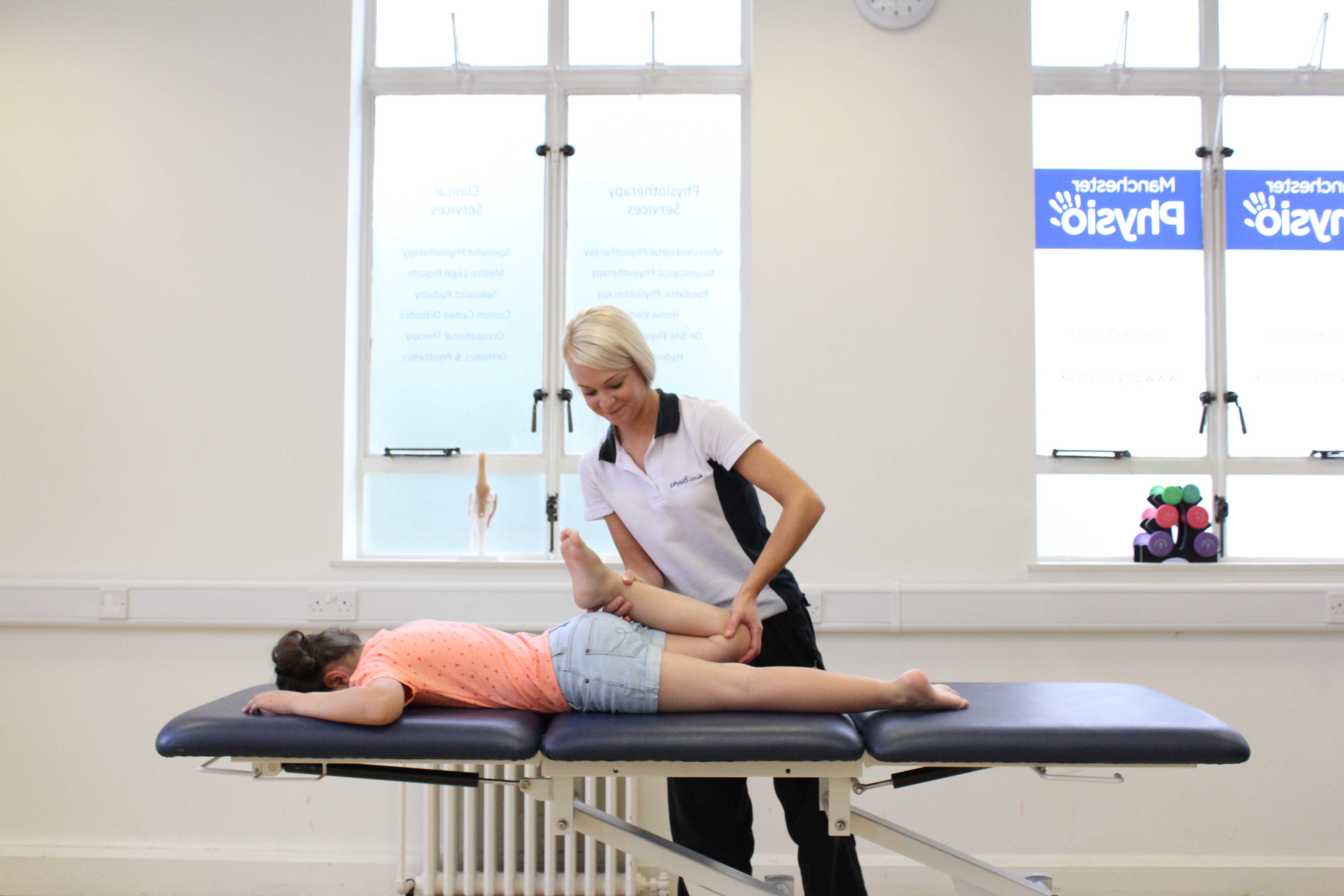What is Cerebral Palsy?
Cerebral Palsy is a term used to describe a range of conditions that will impact on a child’s normal development. A child with cerebral palsy may have difficulties with movements, often due to altered muscle tone and coordination.
 Above: Use of taping to stabilise and increase proprioception within a joint, improving mobility rehabilitation
Above: Use of taping to stabilise and increase proprioception within a joint, improving mobility rehabilitationWhat causes Cerebral Palsy?
Cerebral Palsy can be caused by numerous factors including; premature birth, lack of oxygen, or and infection, during a babies development. Cerebral palsy arises due to damage to the baby’s brain, either while in the womb or during early development.
What are the effects of Cerebral Palsy?
The effects of cerebral palsy vary widely. Effects of cerebral palsy can range from severe (where the child may need full support with everyday need for life,) to mild (where a child may have only the slightest signs of cerebral palsy, such as tight calves).
Sometimes a diagnosis of cerebral palsy can be made almost immediately after birth. Babies born with severe cerebral palsy often have an irregular posture, and their limbs may be either very floppy or very stiff. Birth defects, such as spinal curvature, a small jawbone, or a small head may also indicate cerebral palsy.
Some babies born with cerebral palsy do not show obvious signs right away, and they may not get diagnosed with cerebral palsy until they are older, if at all. Common reasons for a diagnosis of Cerebral Palsy during a child’s development are:
- Fits
- Muscle contractions and spasticity
- Difficulty with feeding
- Irregular pattern of breathing
- Delayed development of motor skills (reaching, sitting, rolling, crawling, walking)
- Speech problems
- Visual problems
- Hearing problems
- Muscle contractures that slowly get worse as the child grows
Physiotherapy for Cerebral Palsy
Physiotherapy is very important for all children with cerebral palsy, especially during their early years. With the correct physiotherapy from our paediatric physiotherapists the development potential of your child can be reached. The paediatric physiotherapists at Physio.co.uk will use a range of specialist techniques to optimise the physical development of your child whilst minimising the impact of their disability. Common techniques include Bobath and other neuro-development principles to encourage a normal movement pattern to be established. The paediatric physiotherapists at Physio.co.uk will work with your child to achieve developmental milestones such as; rolling, crawling, sitting, reaching and walking.
To arrange a physiotherapy appointment call Physio.co.uk on 0330 088 7800, book online or alternatively request a free phone consultation.
What are the long term effects of Cerebral Palsy?
The symptoms of cerebral palsy may change over time as your child develops. Although Cerebral Palsy is non-progressive, the impact it has on muscle tone, and the joints will change over time. The physiotherapists at Physio.co.uk will aim to limit the impact of cerebral palsy though a combination of; stretching, exercises, hydrotherapy, handling techniques and the recommendation of equipment. Alongside this the physiotherapist will also aim to optimise the physical abilities of your child as they grow. The earlier, and more frequently, a child receives physiotherapy input the more likely they are to succeed in achieving their physical potential.
To arrange a physiotherapy appointment call Physio.co.uk on 0330 088 7800, book online or alternatively request a free phone consultation.

 0330 088 7800
0330 088 7800


































